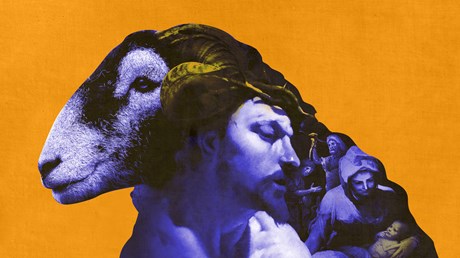Hannah, Zechariah, and the psalmists have good reasons for speaking of them so reverently.

Many women have had the experience of praying for a child. If the request is not granted, it can be a source of immense pain and sorrow. If it is granted, it often results in joyful celebration and thanksgiving.
Scripture gives us a number of examples: Eve highlighting the promise of God, Sarah laughing, Leah hoping that her fertility will make her husband love her, Rachel exclaiming that her shame has been taken away, Elizabeth keeping quiet for the first 20 weeks (Luke 1:24), and a young woman who (famously) rejoices in her pregnancy despite not having prayed for a child or even having had sex in the first place.
Those of us who have prayed for children may be able to relate to each of these responses and perhaps imagine ourselves reacting in a similar way if our prayers were answered. But one thing that none of us would do, I suspect, is to do what Hannah did and sing a song about horns.
Strength and plenty
“My heart exults in the Lord; my horn is exalted in the Lord” (1 Sam. 2:1, ESV throughout). Hannah has just had a miracle baby; what have horns got to do with it? Are we talking about musical instruments, animal headgear, or something else entirely? And why?
Then, as Hannah finishes her prayer, she returns to the horn theme. “The Lord will judge the ends of the earth; he will give strength to his king and exalt the horn of his anointed” (2:10). The word appears in the first and last lines of her thanksgiving prayer for Samuel, and it pops up again when Zechariah gives thanks for the birth of John the Baptist (Luke:1:69), as well as in numerous psalms. Seriously, what have horns got to do with babies?
In most cases, not much. We named our son Samuel because of this very story and give thanks to God ...
from Christianity Today Magazine
via

.gif)

.gif)

.gif)
.gif)
